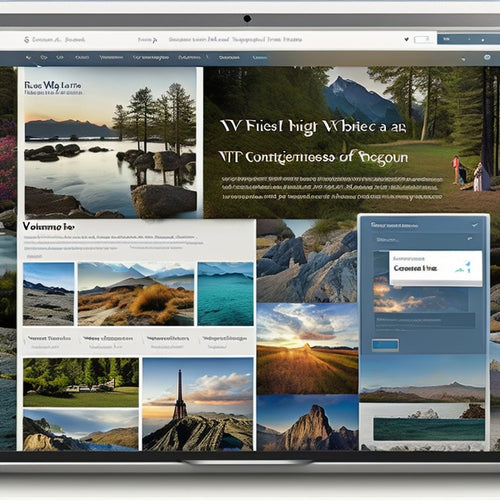
Unveiling Visa-Mastercard's High-Risk MCC Codes
Share
Visa-Mastercard designates specific industries as high-risk, necessitating unique Merchant Category Codes (MCCs) that influence merchant account fees, terms, and conditions. These MCCs play an important role in identifying and managing risk exposure, with non-compliance resulting in penalties or account termination. High-risk industries, such as those requiring robust security measures, face compliance challenges and must understand their MCC code implications. Understanding the intricacies of high-risk MCC codes is essential for merchants, ISOs, and PFs. As we explore the world of high-risk payments, the importance of effective risk assessment and compliance becomes increasingly clear, and uncovering the nuances of these codes will reveal more about the complexities of this space.
Key Takeaways
• High-risk industries, such as gambling and adult content, are classified by Visa-Mastercard and require specific Merchant Category Codes (MCCs) for transactions.
• MCC codes determine merchant account fees, terms, and conditions, with high-risk codes resulting in stricter terms and increased fees.
• Payment processors use MCC codes for risk assessment, and merchants in high-risk industries must understand and manage their MCC code implications to avoid penalties.
• Specialized industries require tailored solutions for risk mitigation and compliance, and partnering with ISOs can help high-risk merchants navigate payment processing complexities.
• Effective risk assessment and compliance are crucial in high-risk payment processing, with AI-powered fraud detection tools and regular transaction audits aiding in fraud mitigation and transaction monitoring.
High-Risk Industry Categories
Several industry categories are classified as high-risk by Visa-Mastercard, necessitating specific Merchant Category Codes (MCCs) to facilitate transactions.
These high-risk industries are subject to rigorous risk assessment, as they pose a higher likelihood of fraudulent activities, chargebacks, and other security concerns.
As a result, businesses operating within these sectors face compliance challenges, requiring them to implement robust security measures to mitigate potential risks.
Failure to comply with Visa-Mastercard's regulations can result in penalties, fines, or even account termination.
It is crucial for merchants to understand the specific MCC codes assigned to their industry and adhere to the corresponding risk management protocols to guarantee secure and compliant transactions.
MCC Codes Explained
Merchant Category Codes (MCCs) are four-digit numbers assigned by Visa-Mastercard to categorize businesses based on their industry, product, or service offerings, enabling acquirers and payment processors to identify and manage risk exposure across various merchant categories.
This classification system facilitates risk assessment, allowing payment processors to evaluate the potential risks associated with specific business types. MCCs play a pivotal role in merchant services, as they determine the fees, terms, and conditions applicable to a merchant account.
Merchant Account Implications
A merchant's MCC code assignment has a direct impact on their account, influencing the fees, terms, and conditions that govern their payment processing activities.
High-risk MCC codes, such as those listed by Visa-Mastercard, can lead to increased merchant account risks and payment processing challenges. Merchants operating in these industries may face higher fees, stricter terms, and more stringent conditions to mitigate potential losses.
Additionally, they may be required to provide additional documentation, maintain higher reserve requirements, or face more frequent account reviews.
It is essential for merchants to understand the implications of their MCC code assignment and take proactive steps to manage their merchant account risks and navigate payment processing challenges effectively.
The Role of ISOs and PFs
In the complex landscape of payment processing, Independent Sales Organizations (ISOs) and Payment Facilitators (PFs) play an essential role in facilitating transactions for high-risk merchants, often serving as a key link between these businesses and the acquiring banks that enable their payment capabilities.
ISOs offer several advantages, including specialized expertise, flexible pricing models, and tailored support for high-risk merchants.
In contrast, PFs often face challenges in managing risk, ensuring compliance, and mitigating fraud. By partnering with an ISO, high-risk merchants can leverage their expertise and resources to navigate the complexities of payment processing, reducing the risk of account closures and ensuring continued business operations.
Navigating High-Risk Payments
High-risk payment processing requires meticulous navigation, as specialized industries and business models often necessitate tailored solutions to mitigate risk and guarantee compliance. Effective risk assessment is vital in payment processing, as it enables businesses to identify and address potential vulnerabilities. Compliance challenges can arise from industry regulations, making it essential to partner with a knowledgeable ISO or PF.
| Payment Processing Aspect | Risk Mitigation Strategy | Compliance Requirement |
|---|---|---|
| Fraud Detection | Implement AI-powered fraud detection tools | PCI-DSS compliance |
| Chargeback Management | Establish a dedicated chargeback team | Visa-Mastercard regulations |
| Transaction Monitoring | Conduct regular transaction audits | AML/KYC regulations |
| Industry-Specific Compliance | Ensure adherence to industry-specific regulations | Industry-specific regulations |
Frequently Asked Questions
What Is the Annual Merchant Registration Fee for High-Risk MCC Codes Visa Merchants?
The 'hidden cost' of high-risk merchant status is a hefty annual registration fee of $950, an important consideration for merchant approval, as Visa merchants must absorb this expense to maintain their high-risk MCC codes.
Can I Still Get Approved for a Merchant Account With a High-Risk MCC Code?
While approval chances for merchant accounts with high-risk MCC codes are lower, it's not impossible. Careful underwriting and risk assessment can lead to approval, but be prepared for stricter terms and higher fees.
How Do I Reduce Chargebacks in a High-Risk MCC Code Industry?
To reduce chargebacks in high-risk industries, implement fraud prevention strategies such as AVS and CVV verification, 3D Secure protocols, and risk management techniques like transaction velocity checks and IP geolocation filtering to minimize fraudulent activity.
Are There Specific Requirements for High-Risk MCC Code Underwriting?
When underwriting high-risk MCC code merchants, specific requirements include stringent underwriting criteria, thorough risk assessment, and enhanced due diligence to mitigate fraud and chargeback risks, ensuring a secure payment processing environment.
Can I Switch From a Payment Facilitator to an ISO for My High-Risk MCC Code?
For instance, a high-risk merchant in the dating services industry (MCC 7273) can benefit from switching to an ISO, gaining payment flexibility and compliance with industry regulations, ensuring a more secure and stable payment processing environment.
Related Posts
-
Maximizing the Potential of Shoppable Videos on Shopify
Shoppable videos have emerged as a powerful tool for e-commerce businesses, offering the potential to engage and con...
-

How Do I Filter Products on Shopify
This article aims to provide a comprehensive understanding of the process of filtering products on the Shopify platf...
-

What Are the Benefits of Creating a Sitemap
The benefits of creating a sitemap have been widely recognized in the field of search engine optimization (SEO). Sit...

